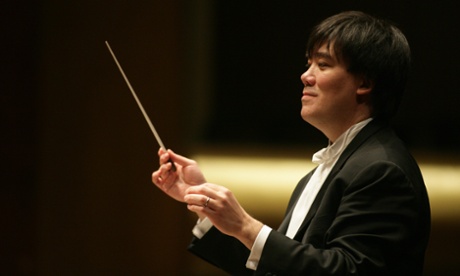
The Leipzig Gewandhaus Orchestra arrived at the Proms without its kapellmeister, Riccardo Chailly, who cancelled his summer engagements after injuring his arm earlier this year. He was replaced by Alan Gilbert, music director of the New York Philharmonic, a fine if variable conductor whose UK performances divide opinion.
The main work in their second programme was Beethoven’s Ninth Symphony, restored after an absence to its once traditional place in the penultimate concert of the series. The symphony was prefaced with Friedrich Cerha’s Paraphrase on the Opening of Beethoven’s Symphony No 9, one in a series of works commissioned in 2010 by the Gewandhaus to accompany the orchestra’s Beethoven cycle, and heard in London during their Barbican residency. Cerha is best known for his completion of the third act of Berg’s Lulu, and his paraphrase takes a variant of the symphony’s opening motto as the starting point for a journey into astringent Bergian darkness and back. It is fractionally too long, but is deftly scored and was attractively played.
The Ninth itself took time to catch fire. The opening allegro was clean and forthright but lacked dramatic tension, while the scherzo, though scrupulously detailed, seemed deliberate and over controlled. The combination of grace and urgency in the slow movement proved compelling, however, and the finale was tremendous. This was unquestionably one of the best-sung Beethoven Ninths of recent years, with an evenly matched quartet of soloists and some formidable choral singing from the combined forces of the Gewandhaus Choir and Children’s Choir, and the Leipzig Opera and London Symphony Choruses. There were fine insights from Gilbert here, too, from the almost imperceptible first emergence of the “Freude” theme out of the silence that preceded it, to the thrillingly precise, yet almost frenzied elation of the closing bars.

